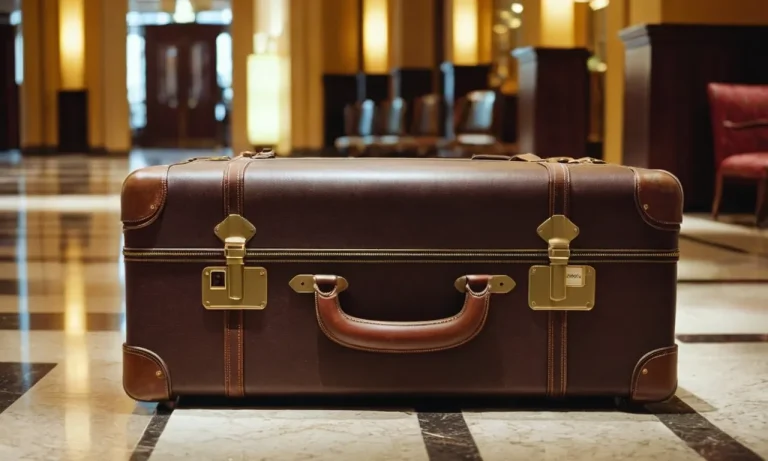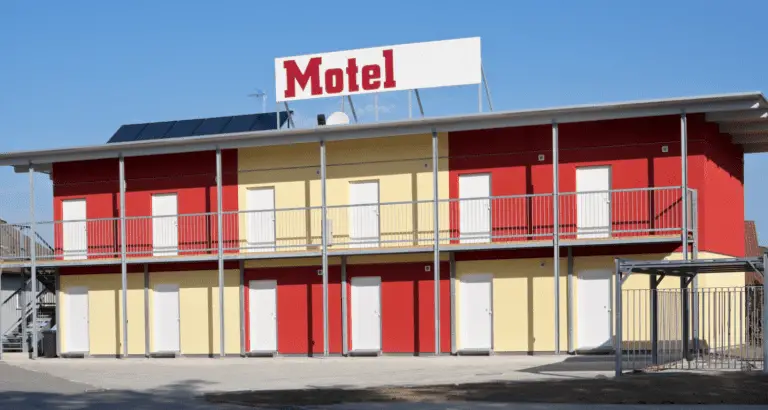Who Owns Best Western Hotels: A Comprehensive Guide
In the ever-evolving landscape of the hospitality industry, Best Western Hotels & Resorts stands as a prominent name, renowned for its exceptional service and global presence. However, the question of who owns this iconic hotel chain often piques the curiosity of travelers and industry enthusiasts alike.
If you’re short on time, here’s a quick answer to your question: Best Western Hotels & Resorts is a cooperative association owned by its member hotels, making it a unique entity in the hospitality industry.
In this comprehensive article, we will delve into the intricate ownership structure of Best Western Hotels, exploring its history, governance, and the advantages of its cooperative model. Additionally, we will shed light on the brand’s expansion strategies, global footprint, and future prospects, providing readers with a holistic understanding of this renowned hotel chain.
The Cooperative Ownership Model
Best Western Hotels operates under a unique cooperative ownership model, which sets it apart from traditional hotel chains. This model is founded on the principles of collaboration, shared resources, and collective decision-making among its member hotels.
Let’s delve deeper into this distinctive structure and explore its benefits.
Understanding the Cooperative Structure
Best Western Hotels is not owned by a single corporation or individual; instead, it is collectively owned and governed by its member properties. Each member hotel is an independently owned and operated business that has joined the cooperative.
By pooling their resources and working together, these hotels can leverage the brand recognition, marketing power, and operational efficiencies of a larger hotel chain while maintaining their autonomy and local identity.
Benefits of the Cooperative Model
- Cost Savings: By sharing resources and leveraging economies of scale, member hotels can benefit from reduced costs for marketing, reservation systems, loyalty programs, and other operational expenses. According to Best Western’s website, this model allows for significant cost savings compared to traditional franchising models.
- Shared Decision-Making: The cooperative model empowers member hotels to have a voice in the decision-making process. They actively participate in shaping the brand’s direction, policies, and strategies, ensuring that their interests and local market needs are represented.
- Brand Consistency: Despite being independently owned, member hotels adhere to consistent brand standards and quality assurance measures, ensuring a consistent guest experience across the Best Western brand.
Governance and Decision-Making Process
Best Western Hotels operates under a democratic governance structure, where member hotels have a say in the cooperative’s decision-making process. Key decisions are made through a voting system, with each member hotel having an equal vote, regardless of its size or location.
This ensures that the interests of all member hotels are considered and that no single entity can dominate the cooperative.
The cooperative’s governance is overseen by a board of directors, which is elected by the member hotels. This board is responsible for setting strategic directions, approving budgets, and ensuring the cooperative’s overall success.
Additionally, various committees and advisory groups are formed to address specific areas such as marketing, operations, and quality assurance, allowing for input and collaboration from member hotels.
| Governance Body | Role |
|---|---|
| Board of Directors | Provides strategic leadership and oversight |
| Committees and Advisory Groups | Focus on specific areas like marketing, operations, and quality assurance |
The cooperative ownership model of Best Western Hotels has proven to be a successful and enduring approach, fostering collaboration, empowerment, and shared success among its member hotels. By leveraging the collective strength of independent hoteliers, Best Western has established itself as a formidable player in the hospitality industry, delivering consistent quality and value to its guests worldwide.
😊
Best Western Hotels: A Historical Perspective
Tracing the Origins
The story of Best Western Hotels began in the late 1940s when a group of independent hoteliers recognized the need for a unified brand that could compete with the emerging chain hotels. In 1946, the Best Western Motels was founded by M.K.
Guertin, a visionary entrepreneur who saw the potential in creating a network of independently-owned hotels that could offer consistent quality and service to travelers across the United States.
The initial concept was simple yet revolutionary: by pooling their resources and establishing a set of standards, these independent hoteliers could leverage the power of a national brand while maintaining their autonomy and unique identities.
This approach allowed them to compete effectively with the larger hotel chains, offering guests a reliable experience without sacrificing the charm and character of their individual properties.
Key Milestones and Achievements
Over the decades, Best Western Hotels has achieved numerous milestones and accolades, solidifying its position as a leading player in the hospitality industry. Some of the key achievements include:
- Becoming the first hotel chain to implement a centralized reservation system in 1964, revolutionizing the booking process for guests.
- Expanding internationally in the 1970s, with the first Best Western hotel outside the United States opening in Canada.
- Introducing the Best Western Rewards loyalty program in 1988, one of the industry’s first guest loyalty programs.
- Achieving a global presence with over 4,700 hotels in more than 100 countries and territories as of 2021, making it one of the largest hotel chains in the world.
Adapting to Changing Market Dynamics
Throughout its history, Best Western Hotels has demonstrated a remarkable ability to adapt to changing market dynamics and consumer preferences. As the travel industry evolved, the company embraced new technologies, introduced innovative services, and diversified its portfolio to cater to a wider range of guests.
One notable example of this adaptability is the launch of Best Western’s upscale brand, Best Western Premier, in 2015. This move allowed the company to tap into the growing demand for luxury accommodations while maintaining its commitment to quality and service.
Additionally, Best Western has embraced sustainable practices and eco-friendly initiatives, responding to the increasing awareness of environmental concerns among travelers.
Today, Best Western Hotels continues to thrive by striking a balance between its rich heritage and a forward-thinking approach. With a diverse portfolio of hotels catering to various market segments and a strong emphasis on guest satisfaction, the company remains a formidable force in the hospitality industry, poised for continued success in the years to come.
😊
Global Expansion and Brand Presence
Worldwide Footprint
Best Western Hotels & Resorts has established a formidable global presence, with a portfolio spanning over 4,700 properties across more than 100 countries. From bustling cities to serene resort destinations, the brand’s diverse offerings cater to a wide range of traveler preferences.
With a strong emphasis on quality and consistency, Best Western has become a trusted name in the hospitality industry, providing guests with exceptional service and comfortable accommodations worldwide.
Strategic Partnerships and Acquisitions
To further solidify its position in the market, Best Western has forged strategic partnerships and acquisitions with other renowned hotel brands. One notable example is the company’s acquisition of WorldHotels in 2019, a move that added over 300 distinctive hotels and resorts to its portfolio, expanding its reach into the upscale and luxury segments.
Additionally, Best Western has collaborated with IHG and other industry leaders, leveraging their expertise and resources to enhance its offerings and deliver unparalleled experiences to guests.
Catering to Diverse Market Segments
Best Western’s global expansion strategy has been driven by a commitment to cater to diverse market segments. From budget-conscious travelers to luxury seekers, the brand offers a wide range of options to suit every preference and budget.
Whether it’s the classic Best Western Hotels, the upscale Best Western Premier, or the extended-stay Best Western Plus, guests can find the perfect accommodation to meet their needs. Additionally, Best Western has introduced specialized brands like Vīb and GLō to appeal to modern, tech-savvy travelers seeking a unique and vibrant experience.
With a keen eye on emerging trends and evolving customer demands, Best Western continues to innovate and adapt, ensuring its offerings remain relevant and appealing to travelers worldwide. Don’t 😕 you just love their diverse offerings? 🤩
Through its relentless pursuit of global expansion, strategic partnerships, and a diverse portfolio of brands, Best Western Hotels has solidified its position as a leading player in the hospitality industry.
With a focus on delivering exceptional service, comfort, and value, the brand continues to win the hearts of travelers around the world, making it a formidable force in the ever-evolving world of hospitality. 👏
Future Outlook and Challenges
Embracing Technological Advancements
As the hospitality industry continues to evolve, Best Western Hotels must embrace technological advancements to stay competitive and meet the changing needs of guests. From mobile check-in and keyless entry to personalized digital experiences, technology has become a crucial component of the hotel experience.
Best Western should invest in cutting-edge solutions that enhance guest satisfaction and operational efficiency. According to a report by HospitalityNet, hotels that prioritize technological innovation can expect higher guest satisfaction rates and increased revenue.
Sustainability and Corporate Social Responsibility
In today’s environmentally conscious world, sustainability and corporate social responsibility (CSR) have become essential considerations for businesses, including the hotel industry. Best Western should prioritize eco-friendly practices, such as energy-efficient buildings, water conservation measures, and waste reduction initiatives.
Additionally, the company can explore partnerships with organizations that promote sustainable tourism and community development. According to a PwC study, 88% of consumers are more likely to choose a brand that prioritizes sustainability and ethical practices.
By embracing sustainability and CSR, Best Western can not only contribute to a greener future but also appeal to conscientious travelers.
Navigating Industry Trends and Competition
The hotel industry is constantly evolving, with new trends and fierce competition emerging regularly. Best Western must stay ahead of the curve by anticipating and adapting to these changes. This may involve offering unique experiences, such as wellness retreats or culinary adventures, to differentiate themselves from competitors.
Additionally, the company should closely monitor consumer preferences and industry reports to identify emerging trends and respond accordingly. According to Statista, some of the top industry trends for 2023 include contactless experiences, personalized services, and sustainable tourism.
By staying agile and responsive, Best Western can navigate the ever-changing landscape and maintain its position as a leading hotel brand.
As Best Western Hotels looks to the future, embracing technological advancements, prioritizing sustainability and corporate social responsibility, and navigating industry trends and competition will be crucial.
By addressing these challenges head-on, the company can continue to thrive and provide exceptional experiences for its guests. With a strategic approach and a commitment to innovation, Best Western is well-positioned to overcome any obstacles and solidify its position as a leader in the hospitality industry.
😊
Conclusion
Best Western Hotels & Resorts’ cooperative ownership model sets it apart from traditional hotel chains, fostering a sense of unity and shared responsibility among its member hotels. This unique structure has played a pivotal role in the brand’s success, enabling it to adapt to changing market dynamics and maintain a strong global presence.
As the hospitality industry continues to evolve, Best Western Hotels & Resorts remains committed to embracing innovation, sustainability, and exceptional guest experiences. With a rich history and a forward-thinking approach, this iconic hotel chain is poised to navigate the challenges and opportunities that lie ahead, solidifying its position as a leader in the industry.







